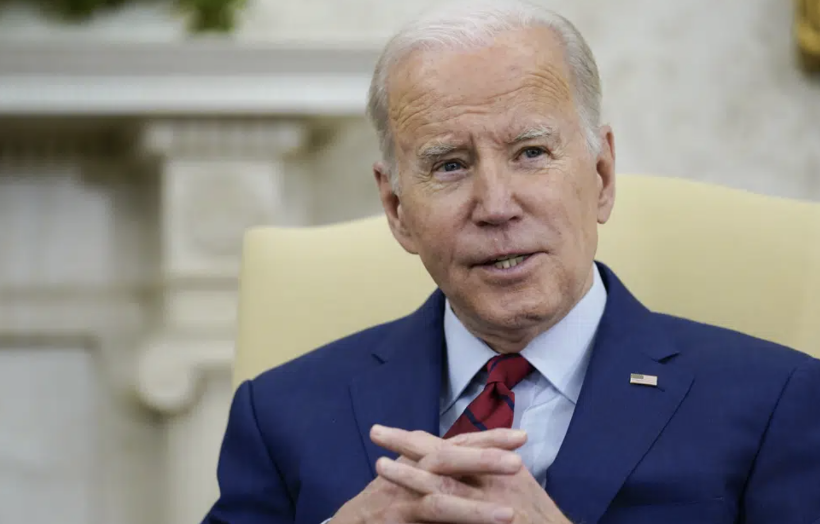The Biden Administration Prepares to Regulate US Investment in Chinese Tech Firms
President Joe Biden in the Oval Office on March 3. Biden plans to sign an executive order limiting US investments in Chinese tech firms. Photo: Susan Walsh | AP
On Friday, March 3, the US trade and commerce departments released reports outlining regulations on outbound investments to firms that pose potential national security risks. According to sources close to the administration, the Biden administration plans to sign an executive order in March or April to implement these regulations, which target AI, semiconductor, and quantum computing firms in China. In response to increasing regulations on foreign investments and trade in China’s tech sector, Chinese Premier Li Keqiang announced that China plans to grow a stronger and more self-reliant tech sector at this past weekend’s opening of the Chinese Parliament.
The US and China have had tensions in advanced tech development in the past few months, with President Biden imposing export restrictions on semiconductor chips to China last October. Biden’s investment regulation proposal goes a step further and doubles down on preventing US money and resources from helping China’s technological advancement.
The executive order has been in the works for months, with lawmakers facing the challenge of drafting effective legislation that does not hurt US investors. Biden scaled back the initial proposed legislation, emphasizing the transparency and monitoring of investments rather than wholly blocking outbound cash flows. Deputy Treasury Secretary Wally Adeyemo stated that he believes the regulations should focus on firms developing technology that pose obvious national security risks and not just companies in competition with US tech firms. The Biden administration does not aim to create an unfair advantage over China but rather protect US interests by not funding China’s ability to enhance its military capabilities.
The US government expects pushback from US firms in response to these regulations. Officials have been communicating with firms about the proposed rules, with some firms like Sequoia Capital, one of the world’s largest venture capital firms, already screening investments to Chinese high-tech companies.
As the US laid out their next step in the gradual process of decoupling the US and Chinese economies amid rising tensions, Chinese officials announced intentions to develop a more self-reliant tech sector at the opening of the National People’s Congress.
A state planner reported that China aims to launch several science and technology projects to help counter ‘chokepoints’ and international competition. The Chinese finance ministry plans to increase the science and tech sector funding by 2 billion yuan. Beijing plans to lighten its severe regulations on China’s largest tech companies, Alibaba and Tencent. The government also laid out plans to foster the development of AI and big data technologies.
Chinese Premier Li Keqiang Delivering a Work Report at the Opening of the National People’s Congress. Photo: Thomas Peter | Reuters
Although President Xi Jinping endorses strengthening the Chinese tech sector, innovation in high-tech proves challenging due to strict government regulations. In response to the US’s development of ChatGPT, Chinese tech firms have worked to create their own high-power AI chatbots. However, the Chinese government censored ChatGPT, causing challenges in technology development.
Decoupling the US and Chinese tech sectors proves difficult as the two countries share strong economic ties. The Biden administration nonetheless seeks to gradually implement legislation that limits US involvement in China’s tech development. China, in response, plans to pool national resources to ensure its success in advanced technological development. In upcoming high-level meetings, the Biden administration plans to encourage support for limiting investments into Chinese tech firms from other G-7 countries. China’s efforts to grow a self-reliant tech sector may urgently advance in response to these developments.


